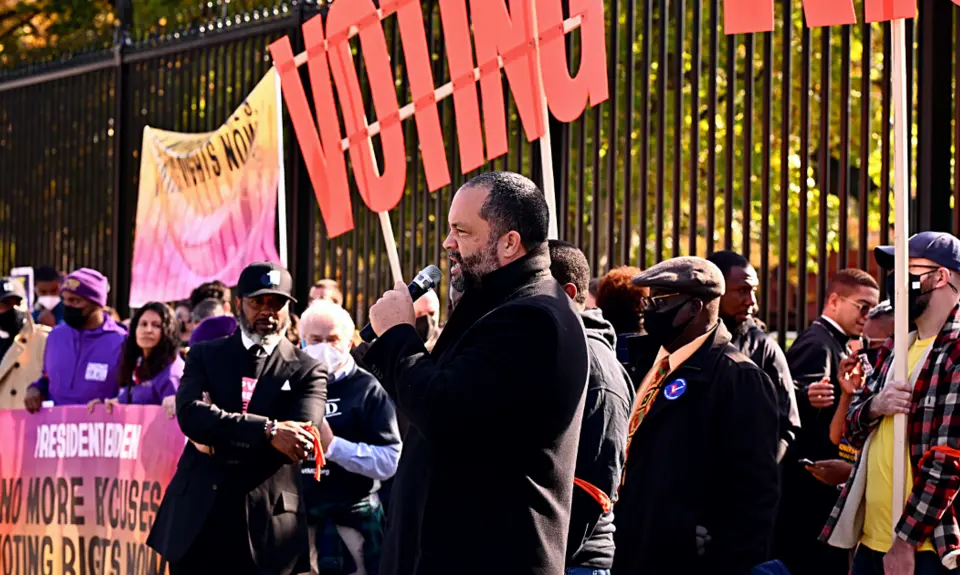During three remarkable months in 2021, from August to November, nearly 300 civil rights advocates – myself included – were arrested at the White House in passionate demonstrations for voting rights. Several of us were arrested multiple times, and our numbers included people from their early teens into their late seventies, faith leaders from multiple denominations, elected officials from all over the country, labor leaders, women’s rights advocates, environmental advocates, racial justice activists and concerned citizens from many walks of life. We did it for one reason: because we believed the President of the United States had a moral obligation to do everything in his power to protect voting rights from the worst assaults we have seen in 60 years.
We still believe that today. And we’re optimistic that largely because of our efforts, the goal is within reach.
How we got here represents an especially dismal chapter in American history. Following Donald Trump’s defeat in the 2020 presidential election, we saw the emergence of the Big Lie – a false narrative that Trump was not defeated but that the election was stolen from him. Far-right state legislators across the country seized the opportunity to propose voter-suppression laws that they hoped would keep the constituency that elected Biden away from the polls, including Black and brown voters, women, and working people. And in 19 states, they succeeded in passing dozens of these laws.
That left national-level voting rights protections as the only option. But two bills, the Freedom to Vote Act and the John Lewis Voting Rights Advancement Act, ran aground in the Senate as a result of Republican filibusters. And the president, a veteran of decades in the Senate, was saying publicly that he believed doing away with the filibuster would throw Congress into “chaos.”
We had to act.
And we did. Our first action at the White House in August quickly led to a bigger civil disobedience in October, when five of us were arrested and held overnight. And then we held our third peaceful action, when 25 were arrested including our board member Alyssa Milano, and our fourth, when nearly 60 were arrested, including the teenage granddaughter of Dr. Martin Luther King Jr. And finally there was our fifth, with more than 200 arrests. With song, prayer, the power of our solidarity and putting our bodies on the line, we sent an unmistakable message to the White House: this is the civil rights cause and the moral imperative of our time. President Biden must not let voting rights die on his watch.
And while this incredible, inspiring activity was happening right outside the White House, what was happening inside was equally incredible. Reporters at the White House briefings started demanding answers on voting rights from the president’s press secretary. After some initial pushback, those answers began to evolve. A White House that once soundly rejected any change to the filibuster for voting rights instead embraced it, when the president told a national TV audience he was open to scrapping it for voting rights – and more.
At the same time, we saw our work bring about an evolution in media coverage consumed by millions of Americans and people around the globe. The voting rights fight was reported not just as an inside-the-Beltway battle, but as a cause embraced by people around the country. An Atlantic headline demanded, “Is Biden Doing Enough to Protect Democracy?”
Right now, the answer is “not yet.” But there’s no question our message has gotten through, a testament to the power of direct action and the good trouble the late John Lewis so powerfully advocated. When voting rights legislation again comes before the Senate, we fully expect President Biden to embrace his “LBJ moment” and be the engine that drives it over the finish line. He has signaled as much. Now he has to act.
Our democracy depends on it.
